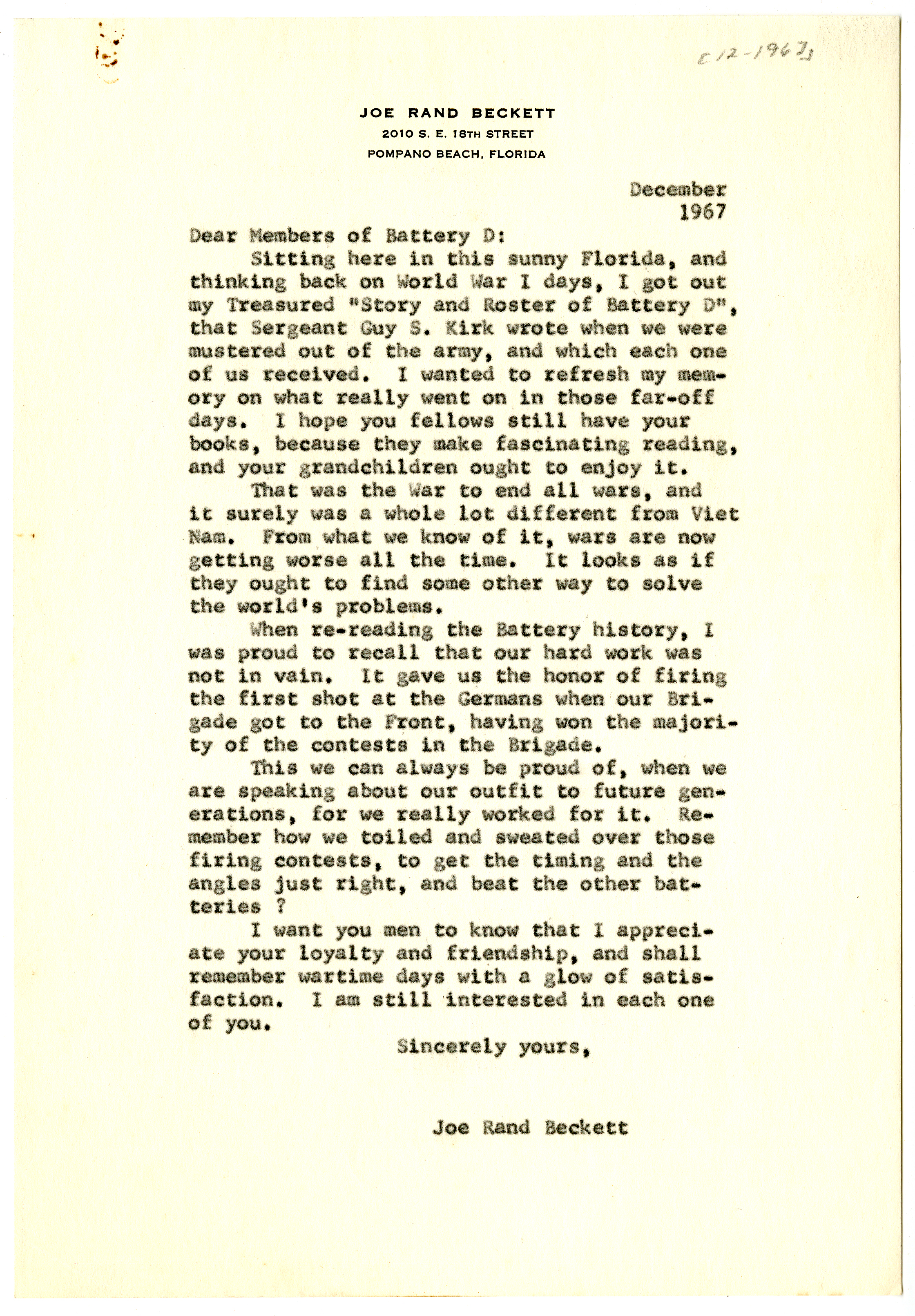When researching for a project, it is vital to record the collections one is researching and all pertinent information for them. This is important, not only for citing your sources and the integrity of your work, but also in case you need to view the material again throughout the course of your research. Record the information below:
- Institution
- Collection title
- Collection name
- Series name and number (if applicable)
- Box, folder, and/or volume/item number
Information about the document itself:
- Creator or author
- Title
- Recipient (if applicable)
- Date
- Page number (if applicable)
Below are examples using collections at the Indiana State Library. Be sure to maintain consistency in your citation style whether it is based on your preference or a professor’s preference. Any information that isn’t available by looking at the folder or box your materials are in would be discoverable in the finding aid for the collection. You can find the finding aid by searching for your collection in the manuscripts catalog.
Chicago Manual of Style
Joe Rand Beckett letter to members of Battery D, December 1967, S0091, Joe Rand Beckett collection, 1917-1969, Rare Books and Manuscripts, Indiana State Library.
Modern Language Association
Beckett, Joe Rand. Letter to members of Battery D. December 1967. S0091, Joe Rand Beckett collection, 1917-1969. Rare Books and Manuscripts, Indiana State Library, Indianapolis.
American Psychological Association
Beckett, J. R. (1967, December). [Letter to members of Battery D]. Joe Rand Beckett collection, 1917-1969 Rare Books and Manuscripts (S0091), Indiana State Library, Indianapolis, IN.
For resources viewed online, you would complete the citation as above and add the access URL at the end.
Chicago Manual of Style
A.E.F. Y.M.C.A. Movement order, 13 January 1919, L359, Box 1, Folder 2, Franklin Newton Taylor papers, 1896-1963, Rare Books and Manuscripts, Indiana State Library. http://cdm16066.contentdm.oclc.org/cdm/singleitem/collection/p16066coll47/id/484/rec/3
Modern Language Association
A.E.F. Y.M.C.A. Movement order. 13 January 1919. L359, Franklin Newton Taylor papers, 1896-1963. Rare Books and Manuscripts, Indiana State Library, Indianapolis. http://cdm16066.contentdm.oclc.org/cdm/singleitem/collection/p16066coll47/id/484/rec/3
American Psychological Association
A.E.F. Y.M.C.A. (1919, January 13). [Movement order]. L359, Franklin Newton Taylor papers, 1896-1963. Rare Books and Manuscripts (Box 1, Folder 2), Indiana State Library, Indianapolis, IN. http://cdm16066.contentdm.oclc.org/cdm/singleitem/collection/p16066coll47/id/484/rec/3
You may need to consult the guides for your citation style to verify how to cite additional information, such as page numbers, or different kind of archival resources, such as diaries or photographs. Find out more by using the websites below or conducting your own web searches.
Chicago Manual of Style
Modern Language Association
American Psychological Association
The Purdue Online Writing Lab also has wonderful resources and guides.
You can also ask a librarian for assistance with citing your resources while doing your research or using QuestionPoint.
This blog post was written by Lauren Patton, Rare Books and Manuscripts librarian, Indiana State Library. For more information, contact the Indiana State Library at 317-232-3678 or “Ask-A-Librarian.”


